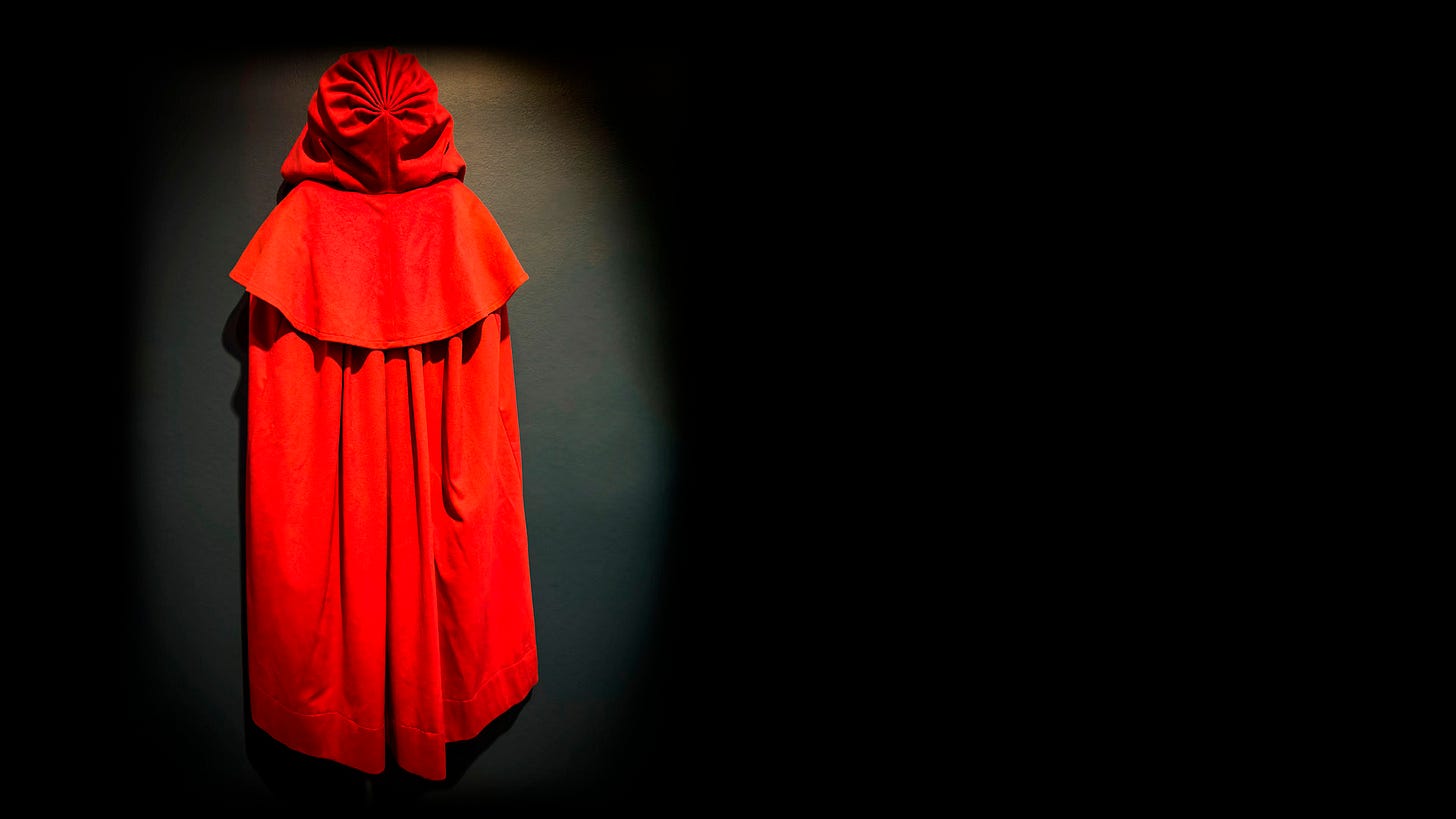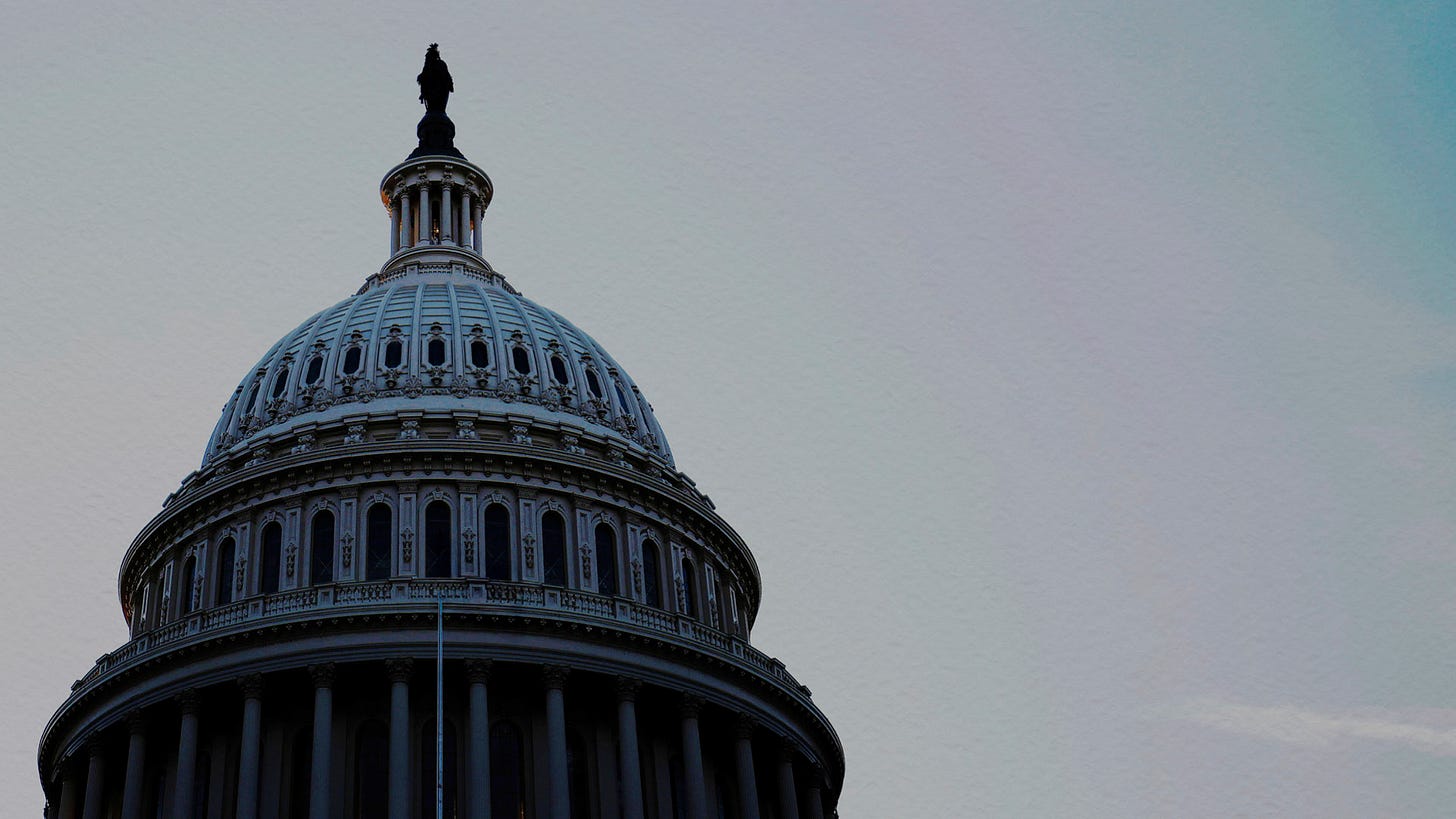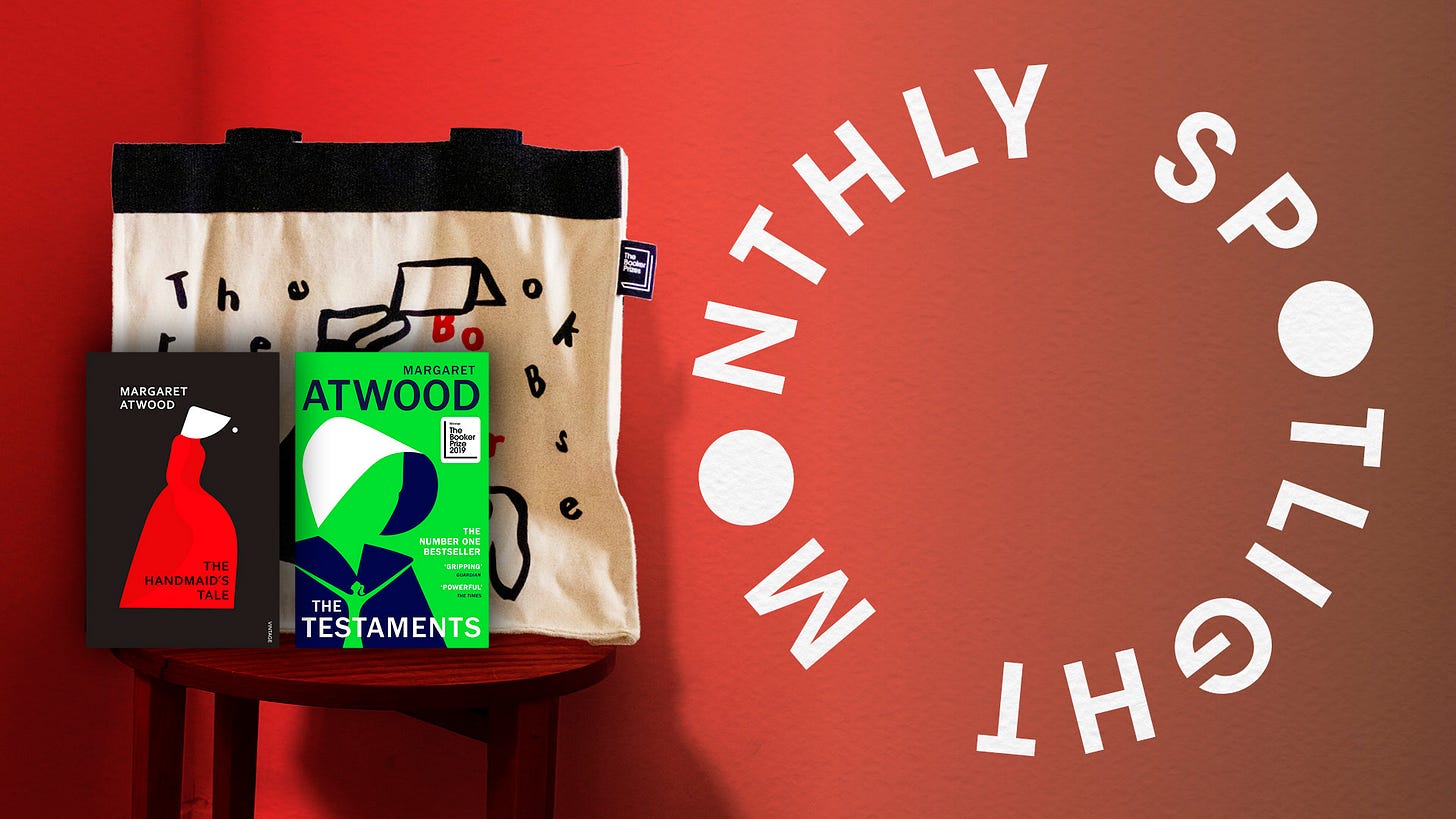Introducing our Monthly Spotlight for April: The Handmaid's Tale by Margaret Atwood
This month, we return to Margaret Atwood's dystopian masterpiece – a remarkably prescient novel that continues to grip readers, four decades on
‘Some books haunt the reader,’ said
. ‘Others haunt the writer. The Handmaid’s Tale has done both.’Forty years ago, Atwood’s cautionary tale was published – a novel that would go on to become one of the defining dystopian works of modern times.
The Handmaid’s Tale was shortlisted for the Booker Prize in 1986, and went on to win the first-ever Arthur C. Clarke Award for science fiction in 1987. In the years since, it has been translated into over 40 languages, banned in many schools and libraries around the world, while the Handmaids’ red robes and white bonnets have become global symbols of feminist resistance. The book has been adapted for film, television, theatre and ballet. Its sequel, The Testaments, won the Booker Prize in 2019. Few novels can claim such an impact.
The story is set in the Republic of Gilead, a theocratic regime where women’s rights have been stripped away. The novel follows Offred, a Handmaid whose sole purpose is to bear children for the ruling elite.
Atwood has always maintained that, although speculative, nothing in the novel is truly ‘made up’. In an interview with the Guardian in 2012, she said: ‘The group-activated hangings, the tearing apart of human beings, the clothing specific to castes and classes, the forced childbearing, the children stolen by regimes and placed with high-ranking officials, the forbidding of literacy, the denial of property rights: all had precedents, and many were to be found not in other cultures and religions, but within western society.’
So, as The Handmaid’s Tale returns to TV screens this month for its concluding season on Hulu, we’re revisiting this classic novel as our April Monthly Spotlight. Read an extract, explore our comprehensive reading guide, and discover where to start with the rest of Atwood’s work. Plus, don’t miss the chance to win a copy of the novel in our latest competition.
Happy reading, and don’t forget to let us – and fellow readers – know what you think about the book in the comments below.
Where to start with Margaret Atwood: a guide to her best books
Since 1969, Atwood has written 17 novels, as well as 18 books of poetry, 11 works of non-fiction, nine collections of short stories, eight children’s books and three graphic novels. Her autobiography, Book of Lives: A Memoir of Sorts, will be published in November. Readers will have to wait a little longer to read her 2014 title Scribbler Moon, the manuscript of which will be locked away in a library in Oslo, Norway, until the year 2114 as part of the Future Library Project.
Figuring out where to begin, then, is no easy feat, although once you’ve started reading Margaret Atwood, the hardest thing is to stop. Here’s our guide to the best of her fiction, to help you on your way…
Read an extract from The Handmaid’s Tale
Offred is a national resource. In the Republic of Gilead, her viable ovaries make her a precious commodity, and the state allows her only one function: to breed. As a Handmaid, she carries no name except her Master’s, for whose barren wife she must act as a surrogate. Dissenters are supposed to end up either at the Wall, where they are hanged, or in the Colonies, to die a lingering death from radiation sickness. But the irrepressible Moira shows Offred that it is possible to cheat the system.
Discover our reading guide to the novel
Whether you’re new to The Handmaid’s Tale or have read it and would like to explore it more deeply, here is our comprehensive guide, featuring insights from critics and the book’s author, as well as discussion points and suggestions for further reading.
Win a copy of The Handmaid's Tale and The Testaments, alongside a Booker Prize tote bag
To celebrate our Monthly Spotlight for April, we are giving you the chance to win a copy of the novel, alongside its follow-up The Testaments, and a limited-edition Booker Prize tote bag.
To be in with a chance of winning, simply enter your details on the Booker Prizes website by 12:00 BST on Wednesday, April 30, 2025. This competition is open to readers anywhere in the world.









A delightful read, and a great selection. 🙏📚🙏
Thank you for the introduction together "Future Library"...a beautiful and touching concept.
I also appreciate the choice of novel you highlighted...acts of courage multiply.